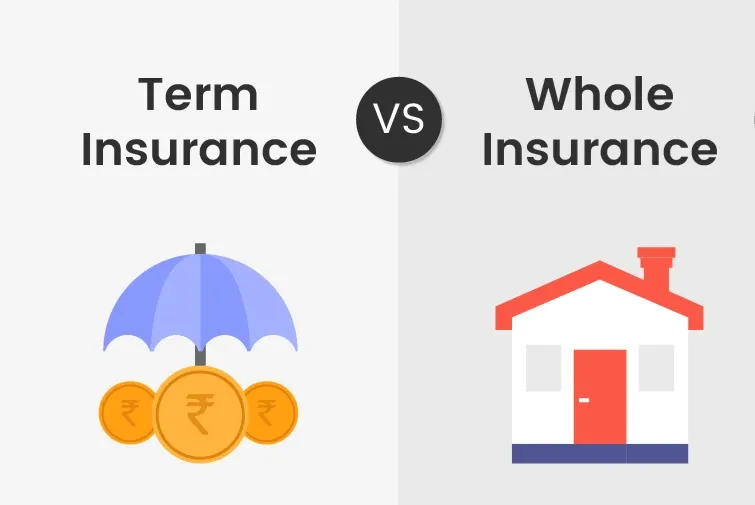Knowledge is a true asset for living smarter. Learn more on “The Key Distinctions Between Whole Life and Term Life Insurance.”
When people start exploring life insurance, one of the most common questions is whether to go with term life or whole life coverage. Both options have unique benefits, but understanding their differences can help you pick the one that aligns with your goals and financial situation.
In this guide, we’ll break down the core contrasts between whole life and term life insurance—focusing on duration, cost, and the benefits that come with each—so you can make the right choice for yourself and your loved ones.
Learn more on “The Key Distinctions Between Whole Life and Term Life Insurance.”
Get Your Free Quote Today
The Key Distinctions Between Whole Life and Term Life Insurance
If you’re considering purchasing life insurance, you’re already taking a great step toward protecting your family’s future. Life insurance provides security and peace of mind, but the key decision is figuring out which type of policy suits you best: whole life or term life.
Whole Life Coverage
The primary appeal of whole life insurance is that it lasts a lifetime. While that may sound appealing, this type of policy usually comes with much higher premiums compared to term life. In reality, its permanence is one of the few advantages. For many families, lifetime coverage isn’t even necessary—especially if you follow smart financial strategies, such as those often recommended by experts like Dave Ramsey.
Think about where you’ll be decades from now: Will you still have dependents relying on your income? Will you have debt or a mortgage to manage? Or will your kids be financially stable and your retirement savings well-built? If you expect to be debt-free in retirement, whole life insurance might not be a wise investment.
Learn more on “The Key Distinctions Between Whole Life and Term Life Insurance.”
Another drawback of whole life insurance is the “cash value” feature. While it may seem attractive, you’re essentially paying much higher premiums for this savings element. Though you can borrow from the accumulated value, fees and restrictions often apply. Worse still, when you pass away, your beneficiaries only receive the policy’s face value—any remaining cash value goes back to the insurer. That makes the return on investment fairly poor compared to other financial strategies.
Term Life Insurance
For most people, term life insurance is the more practical and affordable choice. It’s straightforward, budget-friendly, and provides flexibility in selecting the coverage amount and length that suit your financial goals.
Since premiums are much lower than whole life policies, you free up money to invest elsewhere, potentially earning far greater returns. This makes term life not only cost-effective but also financially strategic.
Learn more on “The Key Distinctions Between Whole Life and Term Life Insurance.”
Term life also has the advantage of simplicity. There’s no savings component or complicated add-ons—it’s purely designed to ensure your family is financially protected if something happens to you during the coverage period. That clarity makes it easier to understand and more focused on what really matters: your loved ones’ security.
In conclusion
The choice between whole life and term life insurance depends on your personal needs, financial health, and long-term goals. Whole life offers lifetime coverage with a built-in savings account, while term life delivers affordable protection for a set period.
By carefully weighing whether you need lifelong coverage or just cost-effective financial security, you can select the policy that provides both peace of mind and financial stability. Consulting a financial expert can also help you determine the best fit.
Both types of insurance exist to safeguard your family’s future—but understanding how they differ ensures you make the right decision for your circumstances.
Learn more on “The Key Distinctions Between Whole Life and Term Life Insurance.”










